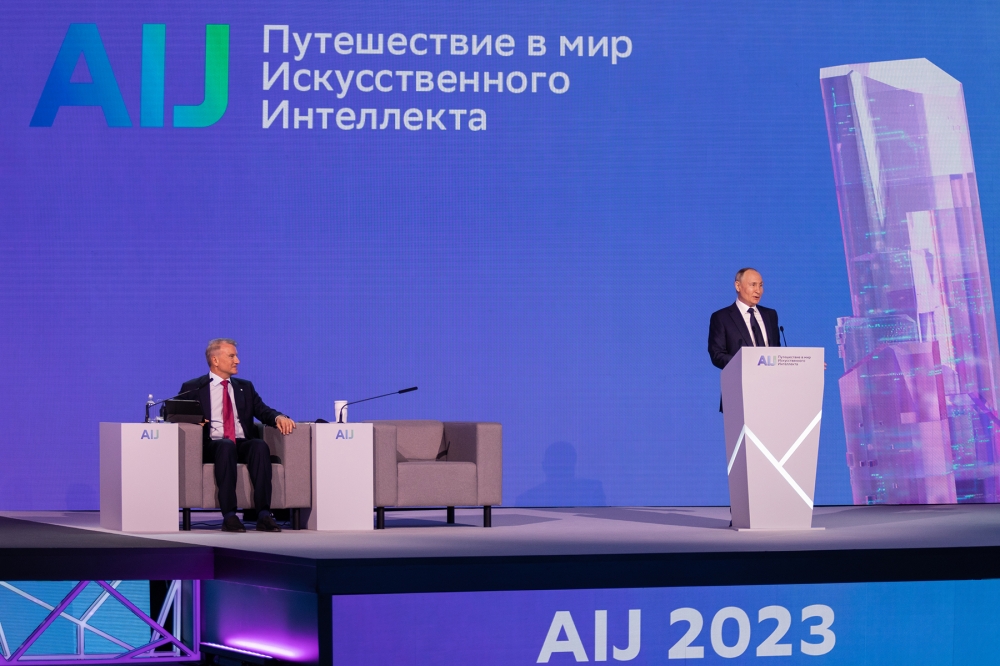KUALA LUMPUR, Dec 1 — More than 200 speakers attended the eighth edition of AI Journey, the international conference on artificial intelligence (AI) held recently in Moscow, Russia from November 22-24.
The virtual conference, seen as a major platform for the promotion and advancement of artificial intelligence, saw participants from all over the world, including India, China, Brazil, Malaysia, Indonesia, the UAE and South Africa.
One of the main aims of the conference, which was streamed in Russian, English and for the first time in Arabic, was to tell the world that AI as a tool can provide enormous assistance to mankind in many different areas.
Already, AI-based solutions are being implemented in many areas of the economy and social sector, actively changing people’s lives for the better.
A key event of the three-day conference was the panel discussion The Generative AI Revolution: New Opportunities, in which Russian President Vladimir Putin shared his vision of the development of neural networks in Russia.
The session was moderated by CEO of Sberbank of Russia Herman Gref, who listed healthcare, education and the creation of fundamentally new management systems as three key areas in which the experts predict AI will make the biggest breakthroughs.

As more is invested into the creation of generative models, companies are farming out more routine tasks to AI helpers. International companies use AI in trading, logistics optimisation and many other activities.
Interestingly, China and India have learned to apply AI to boost harvests, and in Malaysia, AI is used to check the authenticity of consumer goods, medicines and food products.
In primary schools in China, AI is even being used by teachers to monitor students’ concentration levels and participation in class. The data gathered via headbands worn by students is then sent directly to teachers and parents.
In environmental protection, neural networks are also playing an ever-greater role in decarbonisation, forest restoration and waste management.
This begs the question of how to reduce the hydrocarbon footprint of the AI models themselves. The solution is to retrain and reuse existing models rather than create new ones from scratch.
The relevance and legitimacy of AI in environmental protection has been confirmed by a survey conducted in Russia by Sber and Rambler & Co, which confirmed public trust in AI in achieving the green agenda.
In addition, neural networks are becoming increasingly important in medicine. In Russia, computer vision is being used to interpret CT scans, X-ray images and mammograms, as well as for automatic filling of medical documentation by voice and diagnosing diseases.
The next area in which AI is being applied is art and the creative industry as a whole.
Sber introduced to the conference its Kandinsky 3.0 generative model, a neural network which now better understands text requests and in literally a few seconds, can create realistic images, artistic pictures and artworks with sketches.
Kandinsky 3.0 is a convenient, functional and most importantly, free neural network which understands requests in more than 100 languages and offers dozens of styles for image creation.
For people who need to create music, there is the GigaChat neural network model, which Sber representatives spoke about in detail at the conference.
But GigaChat’s capabilities are not limited to creativity as it is already able to address a wide variety of tasks and is being actively used in the banking sector to automate numerous processes.
Another product from Sber, SberAnalytics, can predict revenue with an accuracy of up to 90 per cent and has been highly regarded by businessmen.
Last but not least, the conference explored the ethical aspects of using AI.
A number of foreign and Russian companies signed up to Russia’s National AI Ethics Code while governments and international organisations alike are working hard to ensure that AI is safe and convenient for citizens.
In the near future, there is every reason to suppose that generative models will become true buddies and partners to human beings, simplifying their professional and domestic lives and freeing up time for creativity, development and social activities.






















